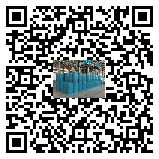Alcohol-soluble leveling agent: invisible optimizer of coating surface
In coating and coating technology, leveling agent is like an "invisible optimizer", silently solving problems such as orange peel,
shrinkage, brush marks, etc. on the surface of the coating. Alcohol-soluble leveling agent stands out among many leveling
agents with its unique chemical properties, becoming a representative of both environmental protection and performance.
1. "Tacit cooperation" with solvents
The core advantage of alcohol-soluble leveling agent comes from its natural compatibility with alcohol solvents. Alcohol solvents
(such as ethanol and isopropanol) have low surface tension and medium evaporation rate, and the leveling agent molecules can
be evenly dissolved in them to form a stable mixed system. This characteristic avoids the local agglomeration phenomenon caused
by uneven dissolution of traditional leveling agents, ensuring that the coating can be quickly spread into a continuous film layer
during construction.
2. Precise control of dynamic leveling
The essence of the leveling process is the art of phase change balance of the coating from liquid to solid. Alcohol-soluble leveling
agents can reduce surface tension and eliminate surface defects in the early stage of coating drying through molecular structure design;
as the solvent evaporates, its molecules will gradually migrate to the inside of the coating film to avoid sagging problems caused by
excessive leveling. This dynamic control ability allows the coating film to be smooth quickly and maintain appropriate thickness uniformity.
3. Environmentally friendly "light burden" solution
Compared with traditional solvent-based leveling agents, alcohol-soluble systems significantly reduce the emission of volatile organic
compounds (VOCs). Alcohol solvents themselves have the characteristics of low toxicity and easy degradation. Combined with the high
efficiency of leveling agents, they can reduce the impact on the environment and human body while ensuring construction performance.
This feature makes it popular in fields with strict environmental protection requirements such as wood coatings and automotive refinishing
paints.
4. Cross-system compatibility advantages
Alcohol-soluble leveling agents show a wide range of substrate adaptability. Whether it is the polar environment in water-based coatings
or the non-polar system in solvent-based coatings, its molecular structure can be fine-tuned to achieve compatibility. This flexibility simplifies
the design of coating formulas, and is particularly suitable for industrial applications that need to take into account a variety of construction
conditions, such as metal anti-corrosion and plastic coating.
5. Surface repair in the microscopic world
At the nanoscale, alcohol-soluble leveling agents can accurately fill tiny depressions on the surface of the coating. The functional groups at
the end of its molecular chain can form weak interactions with the coating resin, which not only ensures the leveling effect, but also does
not excessively change the viscosity of the system. This "micro-repair" ability significantly improves the mirror gloss and scratch resistance
of the final coating.
From home decoration to aerospace, alcohol-soluble leveling agents are optimizing our living environment in an invisible way. It is not only
the crystallization of the wisdom of coating scientists, but also an important witness to the development of material chemistry towards green
and sustainable direction. With the advancement of technology, this type of leveling agent is expected to show its unique value in more
emerging fields and continue to write the legend of "invisible optimizer".


